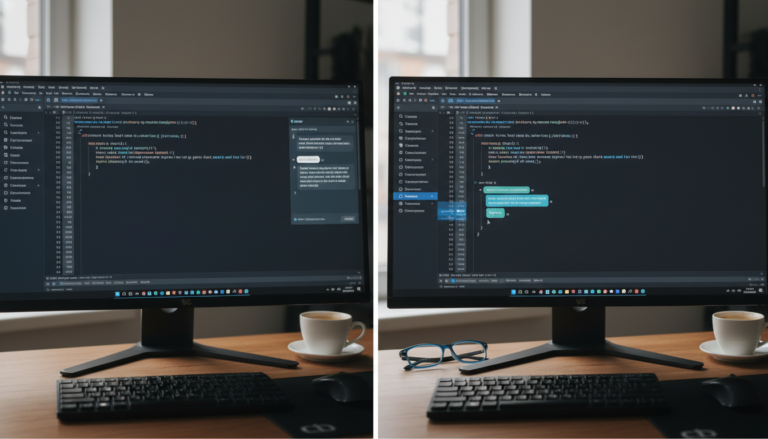Introduction
Coding has become an essential skill in today’s digital age. Whether you’re interested in building websites, developing software, or automating tasks, learning to code opens doors to endless opportunities. But how do you start coding as a complete beginner? This guide will walk you through every step, making your journey into programming both exciting and achievable.

Why Learn Coding?
Before diving into the how, let’s explore why learning coding is beneficial:
- High Demand: Programming skills are highly sought after in various industries, from tech to finance and healthcare.
- Career Opportunities: Roles like software developer, data analyst, and game developer offer lucrative salaries and growth potential.
- Problem-Solving Skills: Coding enhances logical thinking and creativity.
- Flexibility: Many programming jobs allow remote work and flexible hours.
Steps to Start Coding
1. Choose a Programming Language
Start by selecting a beginner-friendly programming language. Here are some options:
- Python: Ideal for beginners due to its readability and versatility. Great for web development, data analysis, and AI.
- JavaScript: Perfect for building interactive websites. Learn JavaScript basics to create dynamic web applications.
- HTML and CSS: The building blocks of web development. Use them to design and structure web pages.
2. Learn the Basics
Master the fundamentals of your chosen language. Use these resources:
- freeCodeCamp: Free coding tutorials and exercises.
- Codecademy: Interactive lessons for beginners.
- Khan Academy: Video tutorials and exercises.
Focus on understanding variables, loops, conditionals, and functions.
3. Practice with Small Projects
Apply what you learn by creating small projects. Here are some ideas:
- Build a to-do list app using Python.
- Create a personal portfolio website with HTML and CSS.
- Design a simple game like tic-tac-toe using JavaScript.
4. Explore Development Tools
Familiarize yourself with essential tools like:
- Code Editors: Use Visual Studio Code or Sublime Text for writing code.
- Version Control: Learn Git to track changes in your code.
- Debugging Tools: Use browser developer tools to debug web applications.
5. Join Coding Communities
Connect with other learners and professionals to stay motivated:
- Stack Overflow: Ask questions and find solutions.
- Reddit: Share experiences and resources.
- GitHub: Contribute to open-source projects.
6. Build a Portfolio
Showcase your skills by building a portfolio. Include projects that demonstrate your coding abilities and creativity. Use platforms like Behance or Dribbble to display your work.
7. Take Online Courses
Enhance your learning with structured courses:
- Udemy: Affordable courses on various programming topics.
- Coursera: University-level courses taught by industry experts.
- edX: Free and paid courses from top institutions.
Overcoming Challenges
Learning to code can be challenging, but persistence pays off. Here are tips to overcome common hurdles:

- Debugging Frustrations: Break down errors into smaller parts and use online forums for help.
- Staying Motivated: Set achievable goals and celebrate small wins.
- Managing Time: Dedicate consistent hours each week to practice coding.
Career Opportunities in Coding
Once you’ve mastered the basics, explore various career paths:
- Web Developer: Design and build websites using HTML, CSS, and JavaScript.
- Data Analyst: Analyze and visualize data with Python or R.
- App Developer: Create mobile applications using Swift (iOS) or Kotlin (Android).
- Game Developer: Design games with engines like Unity or Unreal Engine.
Conclusion
Starting your coding journey can be both exciting and rewarding. With dedication and the right resources, you can build a strong foundation and explore countless opportunities in the tech world.

Ready to take the first step? Begin with free tutorials on freeCodeCamp or join an online course to kickstart your programming adventure.
Thank you for visiting! Check out our blog homepage to explore more insightful articles.



